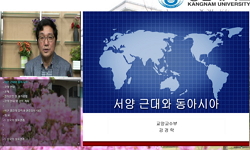The key premise in Japan's continental policy between the Sino-Japanese War and the Russo-Japanese War was the rule of the Korean peninsular. Although the colonization of Taiwan produced 'the policy of maintaining the North and proceeding into the Sou...
http://chineseinput.net/에서 pinyin(병음)방식으로 중국어를 변환할 수 있습니다.
변환된 중국어를 복사하여 사용하시면 됩니다.
- 中文 을 입력하시려면 zhongwen을 입력하시고 space를누르시면됩니다.
- 北京 을 입력하시려면 beijing을 입력하시고 space를 누르시면 됩니다.
부가정보
다국어 초록 (Multilingual Abstract)
The key premise in Japan's continental policy between the Sino-Japanese War and the Russo-Japanese War was the rule of the Korean peninsular. Although the colonization of Taiwan produced 'the policy of maintaining the North and proceeding into the South' as the general direction of Japan's foreign policy, Japan never gave up the goal of ruling Korea. Thus, after 'the policy of maintaining the North and proceeding into the South' failed to produce concrete outcomes in the Boxer Incident, Japan's focus on the continental policy moved once more to the Korean issue. In particular, Japan came to realize the difficulties in expanding its own interest in China due to the interferences by the Western powers. Japan was very aggressive in the Korean issue, in contrast to its easy abandonment of South China. In short, Korea was much more important to Japan.
There were various opinions over the Korean issues, such as dividing Korea and exchanging Korea with Manchuria, most of them resulted in nothing. Still, it is important to notice that Japan began to discuss the Korean issue in relation to Manchuria, narrowing the major parties in the matter into Japan and Russia..
On the other hand, Japan's continental policy after the Sino-Japanese War failed to get out of the goal of ruling Korea, resulting in limiting its diplomatic choices. Japan's continental policy was losing flexibility due not only to the inflexibility of its diplomatic goal but also to the way its sought to achieve that goal. In short, the sense of resistance to the diplomacy using military powers was weakening in Japanese society.
동일학술지(권/호) 다른 논문
-
- 일본사학회
- 이재석
- 2007
- KCI등재후보
-
- 일본사학회
- 이계황
- 2007
- KCI등재후보
-
천황제 이데올로기와 식민지조선 - 1910~20년대를 중심으로 -
- 일본사학회
- 박진우
- 2007
- KCI등재후보
-
- 일본사학회
- 방광석
- 2007
- KCI등재후보
분석정보
인용정보 인용지수 설명보기
학술지 이력
| 연월일 | 이력구분 | 이력상세 | 등재구분 |
|---|---|---|---|
| 2027 | 평가예정 | 재인증평가 신청대상 (재인증) | |
| 2021-01-01 | 평가 | 등재학술지 유지 (재인증) |  |
| 2018-01-01 | 평가 | 등재학술지 유지 (등재유지) |  |
| 2015-01-01 | 평가 | 등재학술지 유지 (등재유지) |  |
| 2011-01-01 | 평가 | 등재학술지 유지 (등재유지) |  |
| 2008-01-01 | 평가 | 등재학술지 선정 (등재후보2차) |  |
| 2007-01-01 | 평가 | 등재후보 1차 PASS (등재후보1차) |  |
| 2005-01-01 | 평가 | 등재후보학술지 선정 (신규평가) |  |
학술지 인용정보
| 기준연도 | WOS-KCI 통합IF(2년) | KCIF(2년) | KCIF(3년) |
|---|---|---|---|
| 2016 | 1.36 | 1.36 | 1.08 |
| KCIF(4년) | KCIF(5년) | 중심성지수(3년) | 즉시성지수 |
| 0.94 | 0.84 | 1.223 | 0 |





 KCI
KCI 스콜라
스콜라






